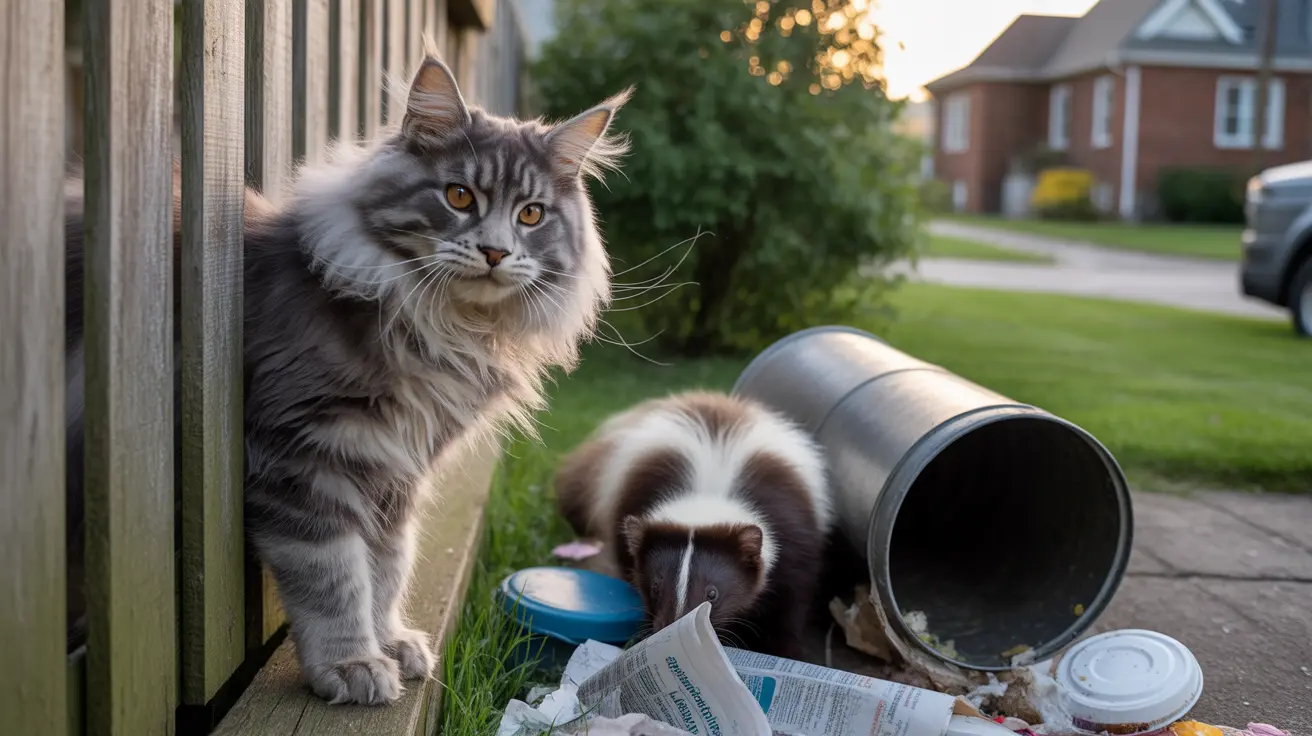For pet owners living in areas where wildlife and domestic animals cross paths, understanding the relationship between cats and skunks is crucial. Many homeowners wonder if their feline companions can help keep these striped visitors at bay. Let's explore the complex dynamics between cats and skunks, and discover whether cats truly have any deterrent effect on these notorious sprayers.
The interaction between cats and skunks is more nuanced than many people realize, involving territorial behaviors, defensive mechanisms, and natural instincts that have evolved over time. Understanding these dynamics is essential for maintaining peace in your backyard and keeping your pets safe.
Understanding Cat and Skunk Encounters
Cats and skunks often share similar habitats, especially in suburban and rural areas. While they may occasionally cross paths, their relationship is typically characterized by mutual avoidance rather than direct confrontation. Skunks are generally not aggressive toward cats, preferring to mind their own business unless threatened.
Both animals are primarily nocturnal or crepuscular, meaning they're most active during dawn and dusk. This timing increases the likelihood of encounters, particularly for outdoor cats or those with access to enclosed patios.
The Truth About Cats as Skunk Deterrents
Contrary to what some might hope, cats don't reliably scare away skunks. In fact, skunks are relatively unfazed by the presence of cats due to their similar size and the skunk's confidence in its powerful defense mechanism. While cat urine might have some deterrent effect due to its ammonia content, this impact is usually minimal and inconsistent.
Skunks are opportunistic creatures that will brave a cat's presence if attracted by food sources such as:
- Pet food left outdoors
- Unsecured garbage
- Garden produce
- Compost piles
Defensive Mechanisms and Warning Signs
When confronted, skunks display a series of warning behaviors before resorting to their infamous spray. These include:
- Raising their tail
- Stomping their front feet
- Hissing or growling
- Making short charging movements
If a cat ignores these warnings and continues to approach or act aggressively, the skunk may deploy its spray, which can cause significant discomfort and temporary blindness in cats.
Protecting Your Cat from Skunk Encounters
The most effective way to prevent skunk-cat confrontations is to keep your cat indoors, especially during peak skunk activity hours. For those who allow outdoor access, consider these preventive measures:
- Install motion-activated lights in your yard
- Remove potential food sources that attract skunks
- Secure garbage cans with tight-fitting lids
- Block off potential denning sites under decks or porches
- Feed pets indoors and clean up any spilled food promptly
Dealing with Skunk Spray Incidents
If your cat does get sprayed by a skunk, immediate action is necessary. The notorious odor comes from thiols, sulfur-containing compounds that are extremely potent and persistent. While home remedies exist, veterinary attention may be necessary, especially if the spray contacts your cat's eyes or mouth.
Frequently Asked Questions
Do cats naturally scare away skunks from my yard?
No, cats don't naturally scare away skunks. Skunks are generally not intimidated by cats due to their similar size and the skunk's powerful defense mechanism. While some skunks might avoid areas where cats are present, this isn't a reliable deterrent.
How can cat urine or used cat litter help deter skunks?
Cat urine contains ammonia, which can mimic the scent of predators. While this might deter some skunks, it's not a consistently effective solution, especially if other attractants like food sources are present in your yard.
What should I do if my cat gets sprayed by a skunk?
If your cat is sprayed, seek veterinary care, especially if the spray contacts their eyes or mouth. You can use a mixture of hydrogen peroxide, baking soda, and liquid soap to help neutralize the odor, but be careful to avoid getting these substances in your cat's eyes.
What are effective ways to prevent skunks from entering my yard and encountering my cat?
Remove food sources, secure garbage bins, block potential den sites, install motion-activated lights, and maintain your yard. Keep pet food indoors and consider installing physical barriers around your property.
Why do skunks spray cats, and how can I reduce the risk of it happening?
Skunks spray when they feel threatened or cornered. To reduce risk, keep cats indoors, especially at dawn and dusk when skunks are most active. If your cat must go outdoors, supervise them and ensure they have easy escape routes to avoid confrontations.






